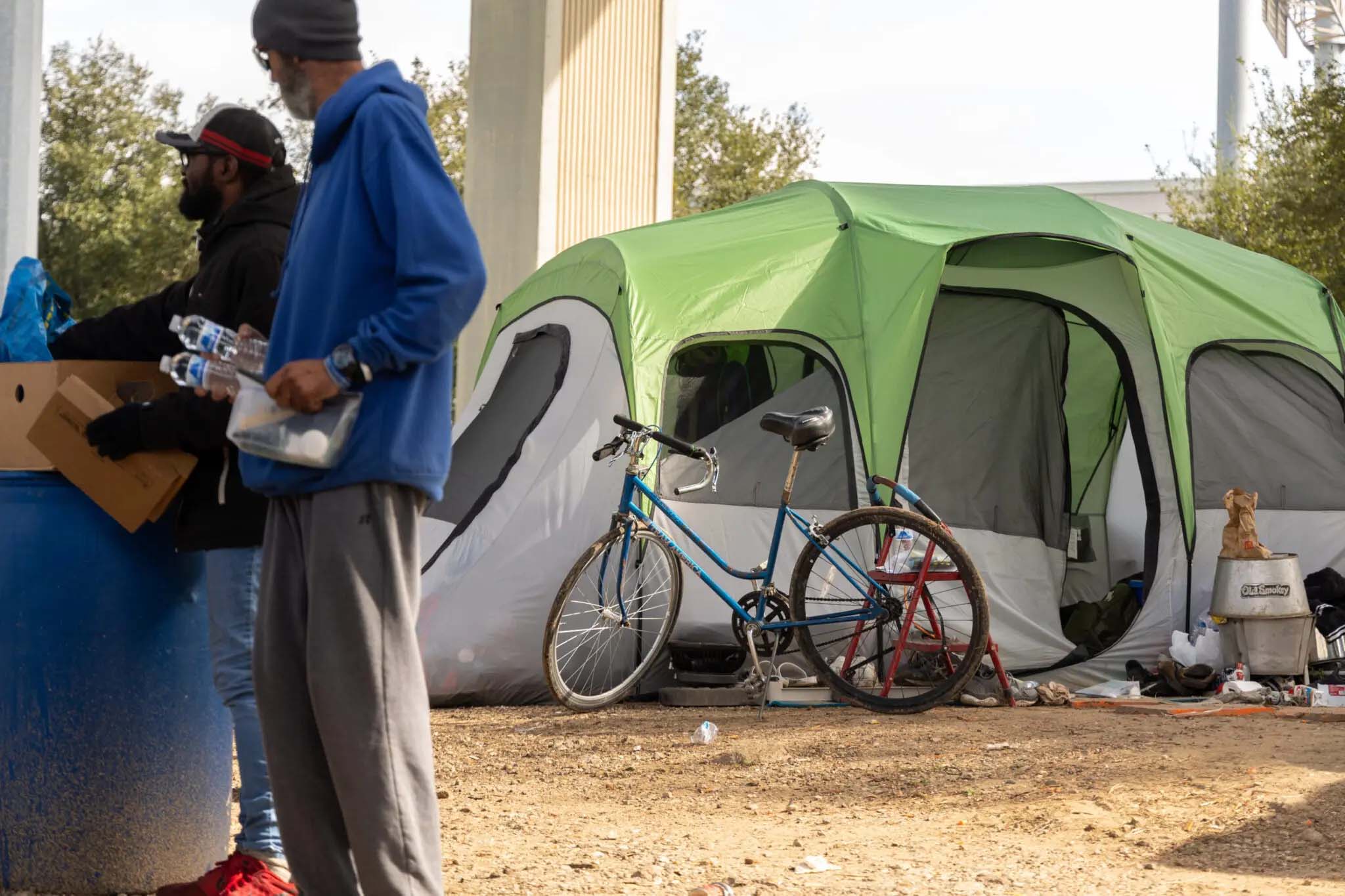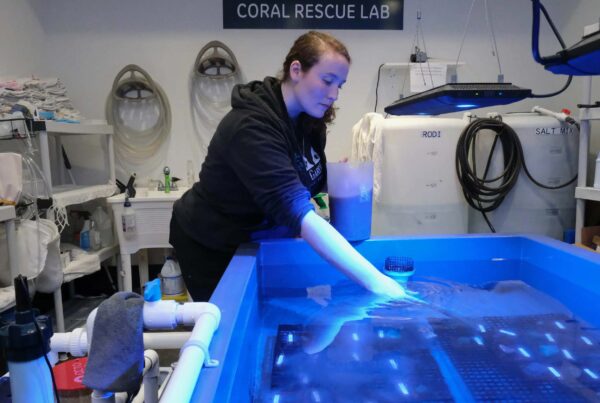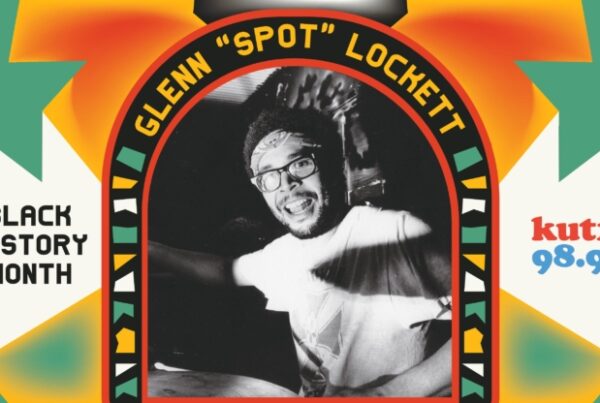Houston has in recent years been held up as a success story in addressing homelessness. But it remains a persistent issue in Texas’ largest city.
A recent analysis by the Houston Chronicle found that infractions related to homelessness – like camping or lying on sidewalks – aren’t enforced evenly across the city.
Rebecca Schuetz and Matt Zdun, the Chronicle’s housing and data reporters, spoke to the Texas Standard about their findings.
This transcript has been edited lightly for clarity:
Texas Standard: Rebecca, first, how did you start looking into where these citations were issued? Was there some indication police were issuing tickets in areas that didn’t have high homelessness populations?
Rebecca Schuetz: Well, actually, in my reporting, I’ve just witnessed tickets being issued. And while trying to understand what was going on, I requested data. And the first round of data, I could just see that tickets for people encamping, which means, either you have a lot of stuff on public property or you have a structure, had really increased in 2020. And it wasn’t until we requested another round of data that we could see where it was happening.
This is where the magic of data reporting comes in, Matt. So let’s talk about what was going on here. Do you know anything about the citations that police were actually issuing? What was the nature of those citations?
Matt Zdun: So these are specifically tickets for encamping in a public place or encamping near an intersection. And this is from August through December of last year. And so when we popped all those points onto a map, we found that most of the tickets were clustered in what has come to be called the Houston Arrow.
This is sort of an area that points – the arrow points to downtown Houston – and it sort of stands out westward from downtown. And, a lot of these tickets are along the border of the arrow or within the arrow. And, this arrow tends to be a place with wealthier residents, whiter residents on average, an area with better health outcomes.
» GET MORE NEWS FROM AROUND THE STATE: Sign up for Texas Standard’s weekly newsletters
Rebecca, I gather you spoke with some people who were ticketed by police for various encampment-related violations. What do they say?
Rebecca Schuetz: Well, some people just expressed confusion. A lot of people weren’t aware that they had a court date or even how much their ticket was for, but people felt like they were being pushed to move.
And, I think some people on the ground saw patterns. You know, they’d be like, “oh, this is a hot spot. You know, the spot where a lot of people are all sleeping on the sidewalk because it’s near services. They’ve started ticketing there.” So we moved to this other spot and they would be, like, a little bit nervous if too many people were gathering at this other spot because that might attract attention there.
That being said, I have also accompanied one person when he went to court and there is something in Houston called homeless court that you have to be referred to by your caseworker if you’re seeking housing. And when you do that, they are very, very, understanding, and they do dismiss a lot of tickets. But like I said, only some people know how to navigate that. And a lot of people expressed confusion, just generally.
I want to ask about what you make of this pattern that you have identified through this data, that Matt has been analyzing as well. What is it that’s happening in terms of policing when it comes to people experiencing homelessness?
Rebecca Schuetz: Well, we were thankful that HPD had a conversation with us about this, and they explained that they respond to complaints. So these are people who are maybe voicing concerns at a community meeting. They might be calling 911. They might be calling HPD’s non-emergency line, and they’re sort of responding to where voices are the loudest. So, the implication there would be that people with resources also tend to be like the squeaky wheel.
In Houston there are these two forces. One is that every year in January, they go out and they try to count every homeless person they can find? They call it the point in time annual count. And that number has been declining even during the pandemic when people thought homelessness would rise. You know, so those are the numbers.
But then there’s also what people see. And I think, you know, if you do see a lot of homelessness outside of your home or your commute or your place of work, those numbers might not reach you. You might be like, “oh, the problem is getting worse.” So I do feel like it’s politics. You have this dual, like, you want to solve the problem, but you also want to solve the perception.
I don’t know if this was a factor in what the police is doing. I think they’re just a responsive agency. But I remember once Mayor [Sylvester] Turner was showing around the mayors of LA and Chicago, and he was showing this facility they used to “decommission” – is the word they use – encampments, to move people out of encampments. And he voiced this issue that like you can be moving thousands of people into homes, but people don’t see that. They see, oh, there used to be someone here and now there isn’t. So he was very aware of the perception issue.
Matt, as you look at the demographics of these areas you talk about, these seem to be centered around wealthier neighborhoods. Is that right?
Matt Zdun: That’s right. They tend to be in sort of what we call the Montrose Midtown neighborhood. Neighborhoods west of downtown, even though, you know, there’s a lot of areas east of downtown, northeast, northwest that have similar homeless populations. But, you know, not receiving nearly as many tickets from Houston police officers.














